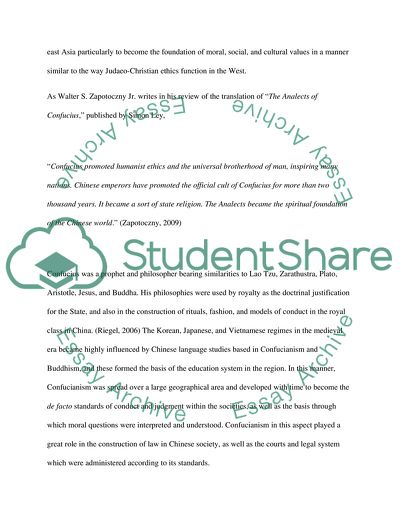Cite this document
(Analects of Confucius by Simon Leys Book Report/Review, n.d.)
Analects of Confucius by Simon Leys Book Report/Review. https://studentshare.org/philosophy/1750910-response-paper-on-the-analects-of-confucius-by-simon-leys
Analects of Confucius by Simon Leys Book Report/Review. https://studentshare.org/philosophy/1750910-response-paper-on-the-analects-of-confucius-by-simon-leys
(Analects of Confucius by Simon Leys Book Report/Review)
Analects of Confucius by Simon Leys Book Report/Review. https://studentshare.org/philosophy/1750910-response-paper-on-the-analects-of-confucius-by-simon-leys.
Analects of Confucius by Simon Leys Book Report/Review. https://studentshare.org/philosophy/1750910-response-paper-on-the-analects-of-confucius-by-simon-leys.
“Analects of Confucius by Simon Leys Book Report/Review”. https://studentshare.org/philosophy/1750910-response-paper-on-the-analects-of-confucius-by-simon-leys.


